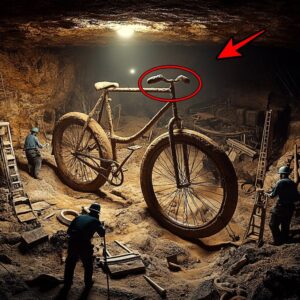Sahar SaleemThe face of the “Screaming Woman” mummy has been locked in an eternal shriek for 3,500 years.

In 1935, archaeologists exploring Egyptian tombs in Deir el-Bahari, near Luxor, came across a heart-stopping sight: an ancient Egyptian mummy whose face was frozen in a permanent scream.
The so-called “Screaming Woman” has long fascinated researchers. Now, a study of her remains has suggested that she died in agony 3,500 years ago.
The Screaming Mummy Of Luxor
A recent study published in Frontiers in Medicine sought to investigate the mummy anew to learn more about her “physical appearance, health, cause of death, and mummification.” During their investigation, they found that the woman likely “died screaming from agony.”
Specifically, the researchers believed that the woman suffered from a type of muscular stiffening called a cadaveric spasm, which can happen at death. It’s known to occur after severe emotional or physical suffering and has been documented in people who died by suicide, assault, or drowning.

Sahar SaleemA full view of the screaming mummy, who likely died a particularly traumatic or painful death.
However, researchers could not determine the woman’s cause of death.
Screaming mummies have been documented before — like the ones found in Guanajuato — and their facial expressions are sometimes attributed to the way muscles relax after death. In the case of the screaming Egyptian mummy, researchers suspect that she was mummified before her muscles relaxed (18 to 36 hours after death) or that “the contracted muscles… prevented embalmers from closing the mouth.”
Egyptian embalmers sometimes tied a cloth around the mandible to keep the mummy’s mouth closed, but this was not done to the screaming mummy. This could be indicative of a rushed or poorly done mummification, but researchers don’t believe that’s the case here. In fact, all other evidence suggests that the woman had a high-class mummification.
Uncover The Latest History News On All That’s Interesting
Divers Find 27,000-Year-Old Fossils Of 13-Foot Sloth In Belizean Sinkhole Da Vinci’s Secret Drawing Underneath The ‘Mona Lisa’ Reveals How Different This Masterpiece Almost Was This Bronze-Age Sword Found In Denmark Is Still Sharp 3,000 Years Later Underwater Archaeologists Find Centuries-Old Glass Vessels Off The Coast Of Bulgaria 4,000-Year-Old Fabric Found In Israel’s Cave Of Skulls Is The Oldest Ever Made With Insect Dye
The Elite Embalming Techniques Found In The Screaming Mummy
During their examination of the Screaming Woman, researchers made several surprising discoveries. For one, all of her organs were intact, including her brain, heart, lungs, liver, spleen, kidneys, and intestines.
This was unusual for the period — and it was not the only strange thing that researchers found as they examined the mummy.

Sahar SaleemDespite the Screaming Woman’s abnormalities, including her gaping mouth and intact organs, researchers believe that she was given a high-class mummification.
They also discovered that the mummy had been embalmed with expensive imported ingredients, including juniper and frankincense. What’s more, her natural hair had been dyed with henna and juniper, and she’d been affixed with a black braided wig made of date palm.
“The funerary techniques the embalmers employed on the corpse of [the] mummy… including the use of a wig, rings, pricey imported embalming materials, and placing the mummy in a wooden coffin, indicat[e] good mummification quality,” the study’s authors explained. “This makes it less plausible that the embalmers were careless to secure the mouth closed.”
Researchers also learned some more about the woman behind the mummy. She was around 48 years old at the time of her death, stood about five feet tall, possibly suffered from mild arthritis, and had several missing teeth.

Sahar SaleemA scan of the screaming mummy, whose hair — dyed with henna and juniper — was covered with a black wig.
She was discovered near the tomb of a prominent royal architect named Senenmut — who was rumored to be a secret lover of Queen Hatshepsut — and may have been related to him.
However, aside from details like these, many questions about the Screaming Woman still remain. Her face is frozen in an eternal scream, and she apparently died in agony — but how? And why?
Perhaps future studies will reveal more.
After reading about the “Screaming Woman” mummy who may have died in agony, go inside the debate over who really built Egypt’s pyramids. Or, discover the story of Thonis-Heracleion, the Egyptian city that sank into the sea — and was rediscovered by underwater archaeologists.




